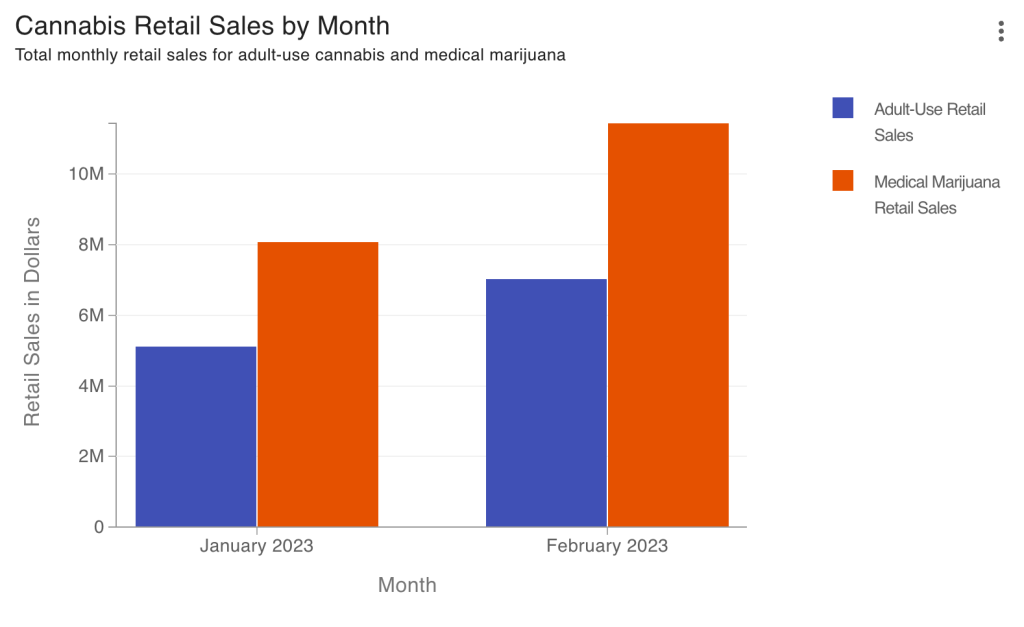Highlights from the UN Commission on Narcotic Drugs meeting.
This week, the annual meeting of the Commission on Narcotic Drugs, which is the United Nations’ primary drug policy-making body, is underway.
While there are no cannabis proposals under formal consideration, cannabis is very much part of the conversation.
(In case you missed it, back in 2020, the CND voted in favor of a recommendation by the World Health Organization to recognize the therapeutic value of cannabis, as Cannabis Wire reported at the time.)
On the “side events” agenda, ten are focused on cannabis.
One on Monday covered “perspectives from a regulated cannabis market,” organized by Uruguay, with the support of Canada, Colombia, Czechia, the Netherlands and SouthAfrica.
Tomorrow, one will be focused on the “regulation of legal cannabis for medical and cosmetic purposes: lessons learned and exchange of best practices,” organized by Morocco.
Several officials took the opportunity to speak about cannabis reforms. Laura Gil, the Vice Minister for Multilateral Affairs of Colombia, for example, spoke about the need to regulate cannabis.
Michael Falzon, Minister for the Family, Children’s Rights and Social Solidarity in Malta, gave a lengthy statement about how cannabis reforms fit into Malta’s “unwavering support” for the global drug control framework.
“To this end, Malta’s recently established authority on the responsible use of cannabis has been mandated to promote the principles of harm and risk reduction and to apply preventive measures rather than pursuing a punitive and costly enforcement regime,” he said.
He continued: “A robust regulated framework has been established in order to monitor a regulated and non-commercialized model for the personal use of cannabis by adult residents in Malta. Malta’s not-for-profit approach seeks to place people and the community at the center of our policies. Consultations with key stakeholders, particularly with civil society organizations, have played a critical role in this process.”
And, while not cannabis-specific, United Nations High Commissioner for Human Rights Volker Türk broadly called for an end to the drug war and its punitive approach. He said that the drug war “has become a war on people, failing us all.”
(In case you missed it last week, Cannabis Wire published an analysis about how the UN’s International Narcotics Control Board, which is tasked with implementing global drug control treaties, grappled with the global reform trend in its latest report.)
Research: Black newborns are tested for cannabis more often
Researchers from the University of Michigan, Ann Arbor conducted a study that asked: “Do newborn drug testing rates and results differ by birthing parent race and ethnicity at a Midwestern US academic medical center, and did this change after state recreational cannabis legalization?”
Researchers analyzed more than 26,000 births between the years 2014 and 2020 and found that medical practitioners were more likely (7.3%) to order drug screenings for Black newborns compared to white newborns (1.9%).
“In this study, clinicians ordered [newborn drug tests] more frequently for Black newborns when no drug testing was done during pregnancy,” researchers concluded. “These findings call for further exploration of how structural and institutional racism contribute to disproportionate testing and subsequent Child Protective Services investigation, surveillance, and criminalization of Black parents.”
This research was published in the peer-reviewed journal JAMA Network Open.
Connecticut’s February sales numbers are in.
The Department of Consumer Protection announced that preliminary data show combined sales for (adult and medical) cannabis topped more than $18.4 million in the first full month of legal sales.







